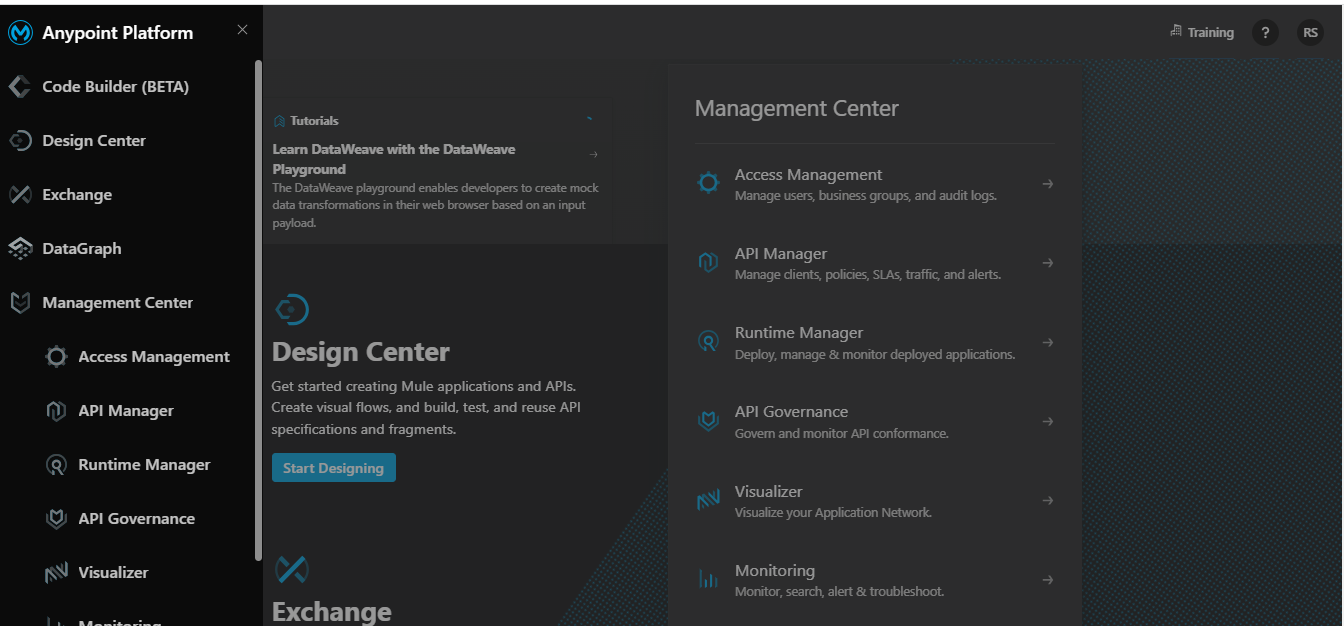
The Anypoint Platform is a comprehensive integration and API management platform that provides a wide range of capabilities to help organizations connect, manage, and secure APIs. Some of the key capabilities of the Anypoint Platform include:
✳️ Design: The Anypoint Platform provides a visual design tool that helps developers design and develop APIs. This tool includes features for API modeling, documentation, and testing.
✳️ Integration: The Anypoint Platform provides a wide range of tools and connectors to help organizations connect disparate systems, applications, and data sources. This includes connectors for a wide variety of cloud-based services, on-premises systems, and third-party APIs.
✳️ API management: The Anypoint Platform provides a comprehensive API management solution that helps organizations publish, secure, and monitor APIs. This includes features for API documentation, versioning, rate limiting, and security.
✳️ Deployment: The Anypoint Platform provides a deployment service that helps organizations deploy APIs to a variety of environments, including the cloud, on-premises, and hybrid deployments.
✳️ Monitoring: The Anypoint Platform provides a monitoring service that helps organizations monitor the performance and usage of APIs. This includes features for tracking API traffic, errors, and latency.

In addition to the core capabilities, the Anypoint Platform also includes a number of other features, such as:
Anypoint Exchange is a marketplace where organizations can find and share APIs, connectors, and other integration assets.
It is a curated catalog of reusable assets that can help organizations accelerate their integration projects.
Anypoint Exchange includes a wide variety of assets like APIs, templates, connectors, examples and documentation.
Anypoint Studio is an Eclipse-based IDE (integrated development environment) for building and deploying Mule applications.
Anypoint Studio is a powerful tool that can help developers build and deploy Mule applications.
It provides a wide range of features to help developers design, develop, test, and deploy Mule applications.
Anypoint Runtime Manager (ARM) is a management console that helps organizations deploy, manage, and monitor Mule applications.
It provides a single pane of glass for managing Mule applications, regardless of where they are deployed.
It is a powerful tool that can help organizations manage their Mule applications.
It provides a wide range of features to help organizations deploy, manage, and monitor their Mule applications.
Here are some of the benefits of using the Anypoint Platform:
Increased agility: The Anypoint Platform can help organizations quickly and easily connect new systems, software versions, devices, and data sources. This allows organizations to react quickly to changing market conditions and take advantage of time-critical new opportunities.
Improved security: The Anypoint Platform provides a comprehensive API management solution that helps organizations secure their APIs. This includes features for API documentation, versioning, rate limiting, and security.
Reduced costs: The Anypoint Platform can help organizations reduce the costs associated with integration and API management. This is because the Anypoint Platform provides a single platform for managing all of an organization's APIs.
Overall, the Anypoint Platform is a powerful tool that can help organizations improve their integration and API management. It provides a wide range of capabilities that can help organizations of all sizes improve their agility, security, and cost-efficiency.It can help organizations connect, manage, and secure APIs. It provides a wide range of capabilities that can help organizations of all sizes improve their integration and API management.